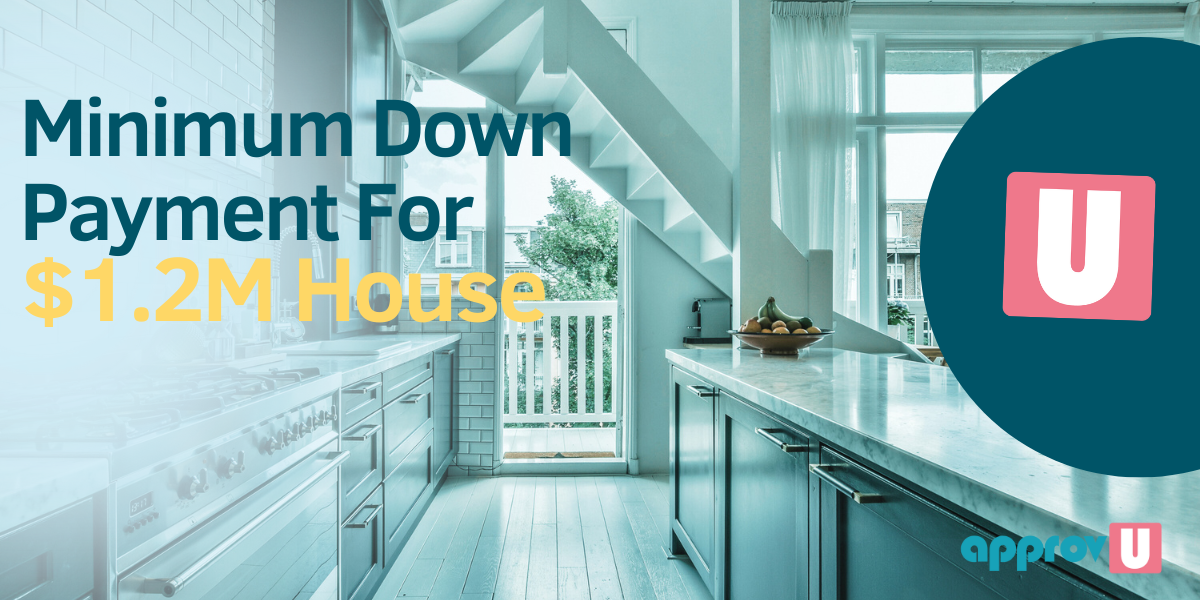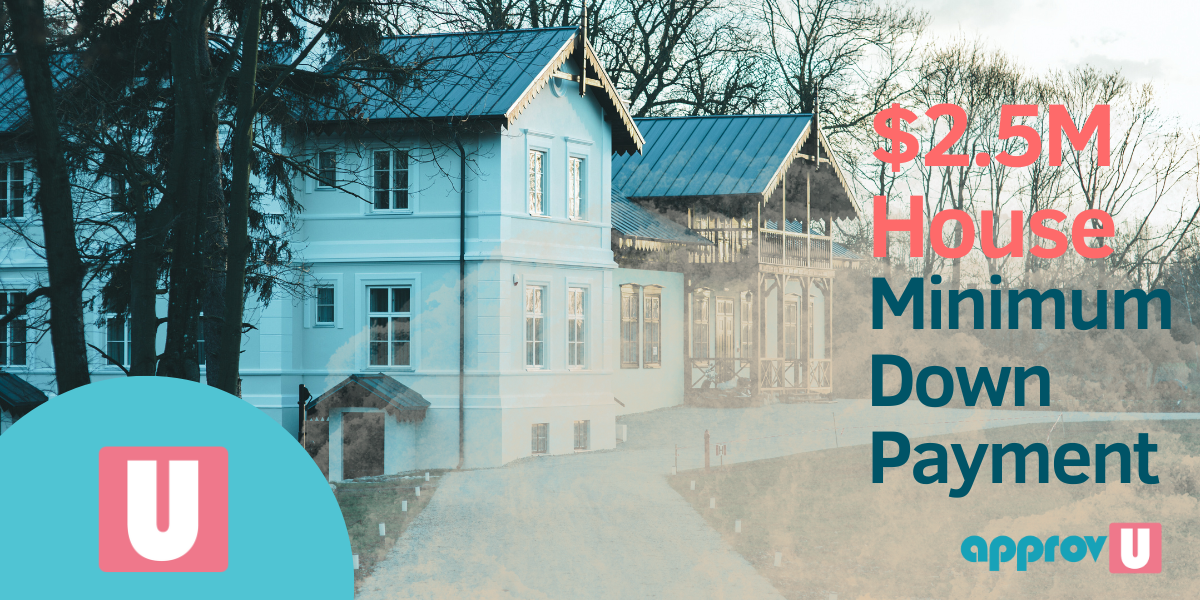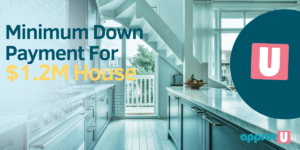Facing the challenge of homeownership?
It’s more than just acquiring a roof over your head; it’s about doing your homework for your wealth.
Many see their home solely as a comfort zone, not realizing its potential as a key financial asset.
Buying a home isn’t just about settling a mortgage; it’s an opportunity to enhance one’s financial standing significantly.
The solution lies in strategic homeownership—aligning property decisions with wealth-building goals.
It’s about transforming your home into a powerful asset that contributes to your financial prosperity, ensuring every decision from mortgage selection to maintenance enhances your economic stability.
This guide offers a roadmap to convert your home into a wealth-building powerhouse.
With tailored strategies and insights, you’ll learn how to leverage homeownership for financial gain and maximize your property’s potential.
Prepare to shift from merely owning a space to strategically investing in your future, maximizing your home’s wealth-building capabilities.
Understanding Homeownership as an Investment
When you think of your home, you likely envision a sanctuary, a personal retreat from the world outside.
But your home can also be an important component of your investment portfolio.
Understanding this dual role of your home can change how you view homeownership and how it can impact your finances in the long run.
Your House: A Dual-Purpose Asset
Imagine your home not just as your haven but as a cornerstone of your wealth-building strategy.
It’s one of the few investments you’ll encounter that offers practical and financial benefits.
While it provides you with a place to live, grow, and create memories, it is a substantial financial asset, potentially appreciating over time and contributing significantly to your net worth.
The Significance of Location
The adage “location, location, location” holds profound truth in real estate.
Your home’s location can dramatically influence its investment potential.
Desirable neighbourhoods, proximity to amenities, quality of local schools, and accessibility to employment centres can all enhance the value of your property.
Enjoying your home’s comforts can boost your investment, as its strategic location may offer substantial long-term returns.
Timing the Market
Though timing matters, it’s just part of the real estate equation.
Buying when conditions are right can yield significant gains, as real estate usually appreciates over time despite market ups and downs.
Understanding trends and indicators can help you make choices that fit your financial objectives.
Long-Term Value Appreciation
The prospect of long-term value appreciation is a compelling aspect of homeownership.
Over time, well-chosen real estate has the potential to increase in value, outpacing inflation and contributing to your wealth.
Appreciation can transform your home from a mere living space.
It can provide financial security and even generate passive income if rented out.
The True Cost of Homeownership
Owning a home involves more than just a mortgage; it brings a range of financial responsibilities beyond the purchase price.
Managing all homeownership costs is vital to maintaining your investment and improving your financial health.
Beyond the Mortgage: A Comprehensive View
Your mortgage is just the tip of the iceberg.
It’s a significant monthly commitment, indeed, but it’s accompanied by a variety of other expenses that collectively define the true cost of owning your home.
These costs are continuous, often variable, and essential to consider in your overall budget:
- Maintenance and Repairs: Homes require upkeep, whether routine maintenance or unexpected repairs. These costs can add up quickly. Regularly maintaining your home can prevent more significant expenses down the line, but it’s vital to have a budget for these ongoing needs.
- Property Taxes: Property taxes can be a substantial annual expense, depending on location. These taxes fund local services and infrastructure and can fluctuate based on your home’s value and your municipality’s tax rate.
- Homeowners Insurance: Protecting your home with insurance is non-negotiable. However, premiums can vary widely based on your home’s value, location, and the coverage you choose.
- Utilities and Services: Monthly utilities—like water, electricity, gas, and sewer—and services such as trash removal add to the cost of homeownership.
The Impact of Overlooked Expenses
Expenses that are often overlooked or underestimated can sneak up and disrupt your financial health.
Homeownership can sometimes come with surprises: sudden repairs, property tax increases, or insurance premium spikes.
Underestimating these costs can lead to financial strain, making it challenging to keep up with your mortgage or save for other financial goals.
Mortgage Strategies for Wealth Building
Building wealth through mortgages involves navigating a complex financial landscape.
By choosing the right mortgage plan aligned with your goals, understanding its long-term implications, and securing favourable terms, your mortgage can be a tool for wealth building, not just a debt.
Choosing the Right Mortgage Plan
- Fixed-rate mortgages: Your interest rate remains constant throughout the loan term, ensuring predictable monthly payments and shielding you from interest rate changes. Ideal for long-term homeowners seeking stability and easy budgeting, fixed-rate mortgages guarantee your housing costs won’t rise, even if market rates increase.
- Variable-Rate Mortgage: The interest rate on your home loan can fluctuate over time, usually in response to changes in the prime rate. Your monthly mortgage payments may vary, potentially increasing or decreasing depending on how interest rates move.
Securing the Best Mortgage Terms and Rates
- Boost Your Credit Score: Higher scores mean lower rates and better loan terms, which can save you thousands. Focus on paying debts, being punctual, and fixing errors in your credit report.
- Save for a Bigger Down Payment: The more you save upfront, the less you borrow and the lower your risk. A 20% down payment or more can waive default mortgage insurance (DMI), cutting your monthly expenses.
- Compare Offers: Don’t settle for the first offer. Check rates from banks, credit unions, and online lenders. Comparing can give you bargaining power and help you find better rates.
- Choose Your Loan Amortization Wisely: A 30-year amortization period offers lower monthly payments, but a 25-year mortgage slashes interest costs and builds equity quickly. Assess if you can handle higher monthly payments for long-term savings.
Leveraging Equity to Build Wealth
Home equity is a powerful tool for building wealth.
As you pay down your mortgage, your equity grows.
You can use this equity strategically to achieve your financial goals.
Building Equity Over Time
Equity is the portion of your home’s value that you truly own. It’s the difference between what your home is worth and what you still owe on your mortgage. There are two main ways to increase your equity:
- Pay Down Your Mortgage: You chip away at your loan balance with each payment. Over time, more of each payment goes towards the principal, building your equity faster.
- Home Appreciation: If your home’s market value increases, your equity grows. Market trends, renovations, and desirable neighbourhood changes can all boost your home’s value.
Using Home Equity Wisely
Having substantial home equity offers great potential, but being prudent is vital. Here’s how you can leverage it for wealth:
- Home Equity Line of Credit (HELOC): Like a credit card, HELOC offers a flexible line of credit against your home’s equity for various needs. Ensure a repayment plan to avoid financial risks.
- Refinancing: For ventures like business startups, mortgage refinancing allows you to access equity as a lump sum. However, be cautious; it may extend your mortgage term or increase total interest.
- Home Equity Loan: Similar to a second mortgage, it provides a fixed-rate lump sum for significant investments or improvements, enhancing value.
Strategic Home Improvements and Renovations
When planning home improvements, think beyond immediate gratification.
Focus on upgrades that increase your property’s value. Strategic investments can enhance both enjoyment and financial gain.
Let’s discuss how to identify value-boosting renovations and budgets effectively.
Value-Boosting Home Improvements
To maximize your investment, focus on renovations known for strong ROI:
- Kitchen Updates: Modernize with new countertops, cabinet refacing, or upgraded appliances for significant value enhancement.
- Bathroom Refresh: Upgrade fixtures, toilets, or lighting for improved appeal and functionality, boosting your home’s value.
- Energy Efficiency: Install energy-saving windows, insulation, or HVAC systems to attract buyers with lower utility costs and increase market value.
- Curb Appeal: Enhance landscaping, paint, or front door to make a lasting impression, potentially raising your home’s overall valuation.
Renovation Budgeting and Planning
To ensure your renovations are both financially sound and aligned with your goals, follow these steps:
- Set a Clear Budget: Determine your spending limit without risking financial strain, possibly with guidance from a financial advisor.
- Prioritize Projects: Focus on upgrades that add value and enhance enjoyment, weighing costs against potential returns.
- Get Multiple Estimates: Compare itemized bids from different contractors for the best value and transparency.
- DIY vs. Professional Help: Choose tasks within your skill level to save on labour costs, but opt for professionals when needed to maintain property value.
- Plan for Surprises: Allocate 10-20% of your budget as a contingency fund to handle unexpected expenses without derailing your plans.
Energy Efficiency and Sustainable Living
Choosing energy-efficient living isn’t just eco-friendly—it’s also financially savvy.
Reducing energy consumption can cut utility bills and boost your home’s value.
Let’s explore how these upgrades offer immediate savings and enhance your property’s market appeal.
Benefits of Energy-Efficient Upgrades
By integrating energy-efficient enhancements into your home, you can slash utility costs while increasing its value:
Insulation and Sealing: Improve insulation and seal leaks to cut heating and cooling expenses. This enhances comfort and attracts buyers seeking energy efficiency.
Energy-Efficient Appliances: Swap old appliances for ENERGY STAR-rated models to save on electricity and water bills.
High-Efficiency HVAC Systems: Upgrade modern HVAC systems to lower energy use and boost comfort, appealing to eco-conscious buyers.
Solar Panels: Despite the initial cost, solar panels reduce electricity bills and demonstrate your commitment to sustainability, adding value to your home.
Promoting Sustainable Living
Integrating sustainable practices into your lifestyle boosts your home’s appeal and saves you money in the long run:
Water Conservation: Install water-saving fixtures like low-flow toilets and showerheads to cut usage and bills. Collecting rainwater and using drought-tolerant landscaping further lowers maintenance.
Smart Home Tech: Opt for smart thermostats and energy-efficient lighting to manage usage remotely and save energy.
Sustainable Materials: During renovations, choose eco-friendly options like bamboo flooring and recycled glass countertops for a greener home with added aesthetic appeal.
Managing Property Taxes and Insurance
Managing property taxes and homeowners insurance is crucial for your financial well-being as a homeowner.
Understanding and managing these aspects effectively can protect your investment and ensure your home remains a financial asset.
Let’s explore navigating property taxes and making informed decisions about insurance.
Understanding Property Taxes
Property taxes are essential expenses for homeowners.
These taxes fund local services like schools and roads.
Here’s how to manage them effectively:
- Stay Informed: Know how your local government assesses taxes and understand factors affecting your home’s value.
- Check for Accuracy: Review your tax bill for errors and compare your assessment with similar properties. You can challenge discrepancies to lower your taxes.
- Monitor Rate Changes: Track how often tax rates are updated and the factors driving changes, such as local initiatives or economic shifts.
- Budget Accordingly: Plan for property taxes by budgeting throughout the year or incorporating them into your mortgage payment via an escrow account.
Choosing the Right Homeowners’ Insurance
Homeowners insurance acts as a safety net, shielding you from financial losses due to disasters, theft, and accidents.
Here’s how to select the best coverage:
- Understand Your Policy: Know what’s covered and what’s not. Based on your needs, decide between replacement cost and actual cash value coverage.
- Consider Additional Policies: Depending on your location, you may need extra coverage for events like floods, earthquakes, or hurricanes. Also, think about endorsements for high-value items.
- Compare Quotes: Shop around to find the best rates. In addition to prices, consider factors like company reputation, customer service, and claims response time.
- Review and Update Regularly: Adjust your coverage as your home’s value changes or when you make significant improvements. Regular reviews ensure you’re adequately covered without overpaying.
Preparing for the Future: Exit Strategies
A clear plan for selling or renting your home is essential for a successful transition.
It ensures you can maximize profits and minimize stress when the time comes.
A robust exit strategy involves strategic decisions aligned with your long-term financial goals.
Let’s explore how to plan for market timing, prepare for sale, and consider tax implications.
The Importance of an Exit Strategy
An exit strategy is your plan for eventually transitioning out of your current home—whether through selling, renting, or even passing it on to heirs.
A thought-out exit strategy can help you:
- Maximize Financial Returns: By considering the future marketability of your home and potential appreciation, you can aim to sell or rent at a financially advantageous time.
- Reduce Stress: Knowing your plan in advance can make the transition smoother and less rushed, allowing you to make necessary preparations without last-minute pressure.
- Align with Life Goals: Your exit strategy should reflect your broader financial and personal goals, whether downsizing, relocating, or leveraging your home’s value to fund retirement.
Market Timing Insights
Timing plays a crucial role in selling or renting your home. Consider:
Market Conditions: Stay updated on local real estate trends. High demand and low inventory market can boost your sale price.
Economic Indicators: Factors like interest and employment rates affect buyers’ ability to purchase homes and overall market demand.
Seasonal Trends: Real estate markets have seasonal patterns. While spring is typically ideal for selling, local variations exist. Knowing the best times to sell in your area can lead to faster sales and better prices.
Preparing the Home for Sale
Preparation is vital to attracting buyers and securing the best possible price:
- Enhance Curb Appeal: First impressions count. Simple improvements like landscaping, painting, and minor repairs can significantly boost your home’s appeal.
- Declutter and Depersonalize: Potential buyers want to envision themselves in the space. A clean, clutter-free, and neutral environment can help make that vision a reality.
- Consider Home Staging: Professionally staging your home or making strategic décor updates can highlight its best features and help buyers connect emotionally with the property.
Navigating Tax Considerations
Understanding the tax implications of selling your home can help you retain more of your profit:
- capital gains tax: If your home has appreciated, you may be subject to capital gains tax. However, exclusions are available for primary residences, subject to certain conditions and limits.
- Tax Implications of Renting: If you decide to rent out your home, you’ll need to consider how rental income and expenses will affect your tax situation, including deductions for maintenance, improvements, and depreciation.
Conclusion
Your home isn’t just where you live—it’s a vital part of your wealth-building strategy.
Every decision matters for long-term financial success, from mortgage choices to property improvements.
Prioritize energy efficiency, stay informed about taxes and insurance, and plan for the future.
Approach homeownership strategically, understanding its impact on your financial well-being.
By managing your home wisely, you can turn it into a cornerstone of your financial future, supporting your long-term goals.















